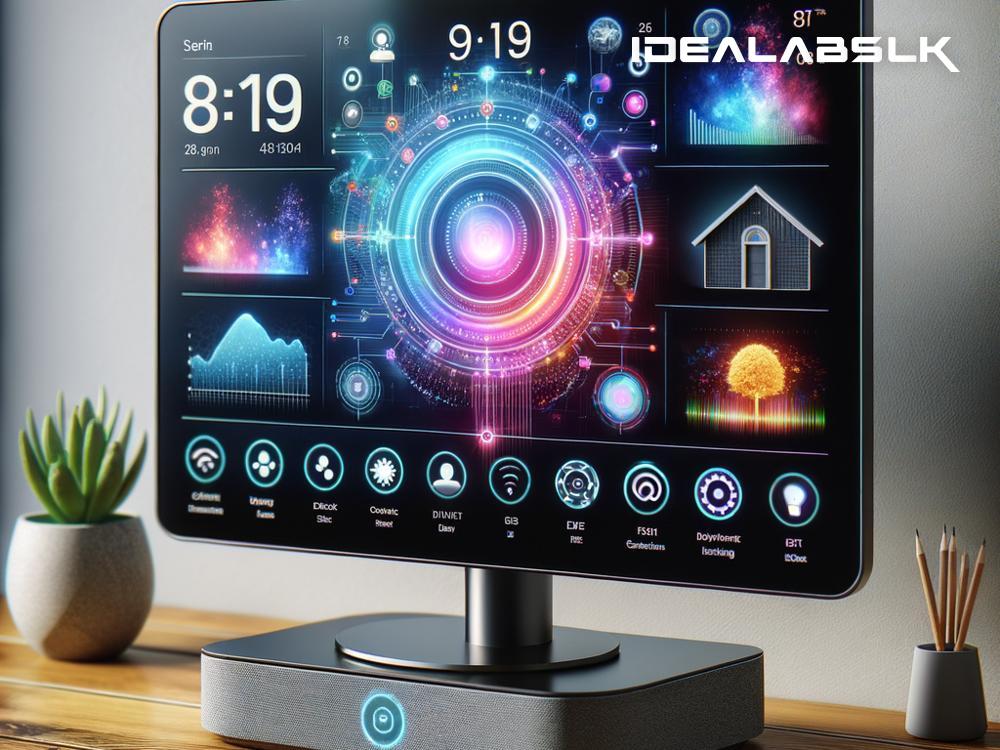How AI Powers Smart Homes of the Future
Welcome to the exciting world of smart homes, where convenience, efficiency, and comfort meet technology! At the heart of this innovative ecosystem lies Artificial Intelligence (AI), the genius behind predictive models that make our homes not just smart, but intelligent. But how does AI work in predictive models for smart home ecosystems? Let's break it down into simpler terms.
Understanding the Basics
First, let's understand what predictive models are. Imagine you had a friend who could predict what you needed before you even mentioned it. This friend remembers your preferences, habits, and routines, and uses this knowledge to anticipate your needs. In the world of smart homes, AI is that friend.
AI relies on data. The more it knows about you and your habits, the better it can predict your needs. For example, it learns the time you usually wake up, the temperature you prefer at home, and even when you like your coffee ready. How does it do all this? Through a blend of sensors, internet-connected devices, and a technique called machine learning.
The Role of Machine Learning
Machine learning is a subset of AI that allows systems to learn and improve from experience without being explicitly programmed. Think of it as teaching a child through examples rather than strict rules. In smart home ecosystems, machine learning algorithms digest vast amounts of data generated by our interactions with various devices. Over time, these algorithms identify patterns and learn from them.
Predictive Models in Action
Let's take a closer look at how predictive models powered by AI are revolutionizing smart homes:
-
Energy Efficiency: Smart thermostats can learn your schedule and temperature preferences. By analyzing this data, AI can predict the best times to adjust the temperature, ensuring comfort while optimizing energy consumption. The result? Lower energy bills and a greener planet.
-
Proactive Security: Imagine security cameras that can differentiate between a regular visitor and a potential threat. AI in smart security systems can analyze past data to recognize suspicious activities and alert homeowners before any harm occurs. This proactive approach enhances home security by leaps and bounds.
-
Personalized Comfort: Smart lighting and sound systems that adjust based on the time of day, your mood, or even the activity you're doing (e.g., reading, cooking, relaxing) are no longer a farfetched idea. AI can learn your preferences and create the perfect ambiance, transforming your home into a personalized haven.
-
Predictive Maintenance: Nothing ruins a day like a broken AC in the middle of summer. AI can predict when appliances are likely to fail, based on usage patterns and historical data. This means you can fix or replace them before they break down, saving time, money, and stress.
-
Efficient Water Usage: From smart sprinklers that adjust watering schedules based on weather predictions to leak detectors that warn you of potential pipe issues, AI helps in conserving water, ensuring that your home is eco-friendly and efficient.
The Power of Integration
While standalone devices offer benefits, the true potential of AI in predictive models shines when these devices are integrated into a cohesive ecosystem. This integration allows for seamless communication between devices, creating a truly intelligent home that adapts to your lifestyle in real-time.
For instance, your smart alarm might not only wake you up but also signal the coffee machine to start brewing, the thermostat to adjust the temperature, and your smart shades to let in that beautiful morning light. This orchestration is only possible with an AI-driven backbone that anticipates and meets your needs, often before you're even aware of them.
The Future is Here
The proliferation of AI in smart home ecosystems is making the once-dreamt notion of living in a home that knows and anticipates your needs a reality. By continuously learning and adapting, AI ensures that our homes not only become more connected and efficient but also truly understand and cater to our individual preferences and habits.
However, as we embrace this exciting future, it's also crucial to consider privacy and security measures to protect the data that feeds these intelligent systems. Thankfully, with advancements in encryption and security protocols, smart home ecosystems are becoming safer and more secure.
Wrapping Up
AI in predictive models is transforming our homes in ways we could have barely imagined a few decades ago. By bridging the gap between technology and human needs, AI is crafting smart home ecosystems that are not just efficient and secure but also deeply personalized. Welcome to the future of living, where your home isn't just where the heart is, but where the smart is!

